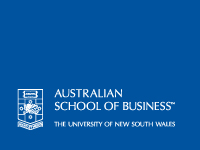|
|||||||||||||||||||||||||||||||||||||||||||||||||||||||||||||||||||||||||||||||||||
| Commerce/Economics - 3521 | |||||||||||||||||||||||||||||||||||||||||||||||||||||||||||||||||||||||||||||||||||

The Bachelor of Commerce/Bachelor of Economics (BCom/BEc) combines the professional orientation of the Bachelor of Economics program with the range of majors available through the Bachelor of Commerce program. This combination allows students to gain greater depth and breadth in their business education than is possible in a single degree, providing students with the opportunity to complete majors in up to three business disciplines. Students will complete a major in both a selected area of Commerce and the professional discipline of Economics. With approval, students with an appropriate academic record may also enrol in an additional Honours year in the relevant program offered in either the Commerce or Economics component of the combined degree. For detailed information on the professional recognition this degree offers please visit Professional Recognition of Programs in the UNSW Online Handbook. Program Objectives and Learning Outcomes The objective of the BCom/BEc is to develop students’:
Studies leading to the award of the Bachelor of Commerce degree normally consist of 192 UOC or 32 courses to be completed over 4 academic years. These UOC need to be made up of:
Compulsory core courses account for 42 UOC (7 courses)
Please note: For students intending to complete a major in Actuarial Studies, MATH1151 and MATH1251 should be completed instead of ECON1203 . Please refer to Actuarial Studies outline for further information.
Flexible core courses account for 18 UOC (3 courses). Students should choose three courses from the following list: Please note: For students intending to complete a major in Actuarial Studies, ACTL1001 Actuarial Studies and Commerce must be completed as one of these flexible core courses. Please refer to Actuarial Studies outline for further information.
Major requirements account for up to 144 UOC (24 courses) Free options account for up to 24 UOC (4 courses). These courses should be taken from within the Australian School of Business. General Education requirements which account for 12 UOC (2 - 4 courses) to be taken outside the Australian School of Business. These courses allow you to select either courses that were developed especially for the General Education Program (beginning with GEN) or to choose 'mainstream' courses that are offered in the degree programs of other faculties.
*Number of free options may vary depending on major combination undertaken. Please contact the Australian School of Business Student Centre for further information.
General Education Requirements UOC in General Education courses or their equivalent (unless otherwise entitled to exemption). For further information about General Education Requirements please refer to the UNSW Online Handbook.
Please note that students enrolled in programs within the Australian School of Business cannot take General Education courses offered by the Business School. These restrictions also apply to the following courses:
If students are unsure of their General Education Requirements they should contact the Australian School of Business Student Centre (Ground floor, West entrance, Australian School of Business building)
Students interested in studying at Honours Level should refer to the relevant Honours plan record for entry requirements.
Rules relating to the award of the degree of Bachelor of Commerce or to the award of the Bachelor of Economics shall apply wherever relevant.
Students are advised to consult the Bachelor of Commerce or Bachelor of Economics Academic Rules for further information. For information regarding fees for UNSW programs, please refer to the following website: https://my.unsw.edu.au/student/fees/FeesMainPage.html
For further information, refer to the Professional Recognition of Programs in the UNSW Online Handbook.
Please note that these requirements may be subject to change.
Students are advised to follow requirements according to the year they commenced. For more information please visit Previous UNSW Online Handbooks. Contact the Australian School of Business Student Centre for advice. tel: + 61 2 9385 3189 location: Ground Floor, West Wing, Australian School of Business Building Forms, policies and procedures Frequently asked questions Related Program(s)
|
|||||||||||||||||||||||||||||||||||||||||||||||||||||||||||||||||||||||||||||||||||


